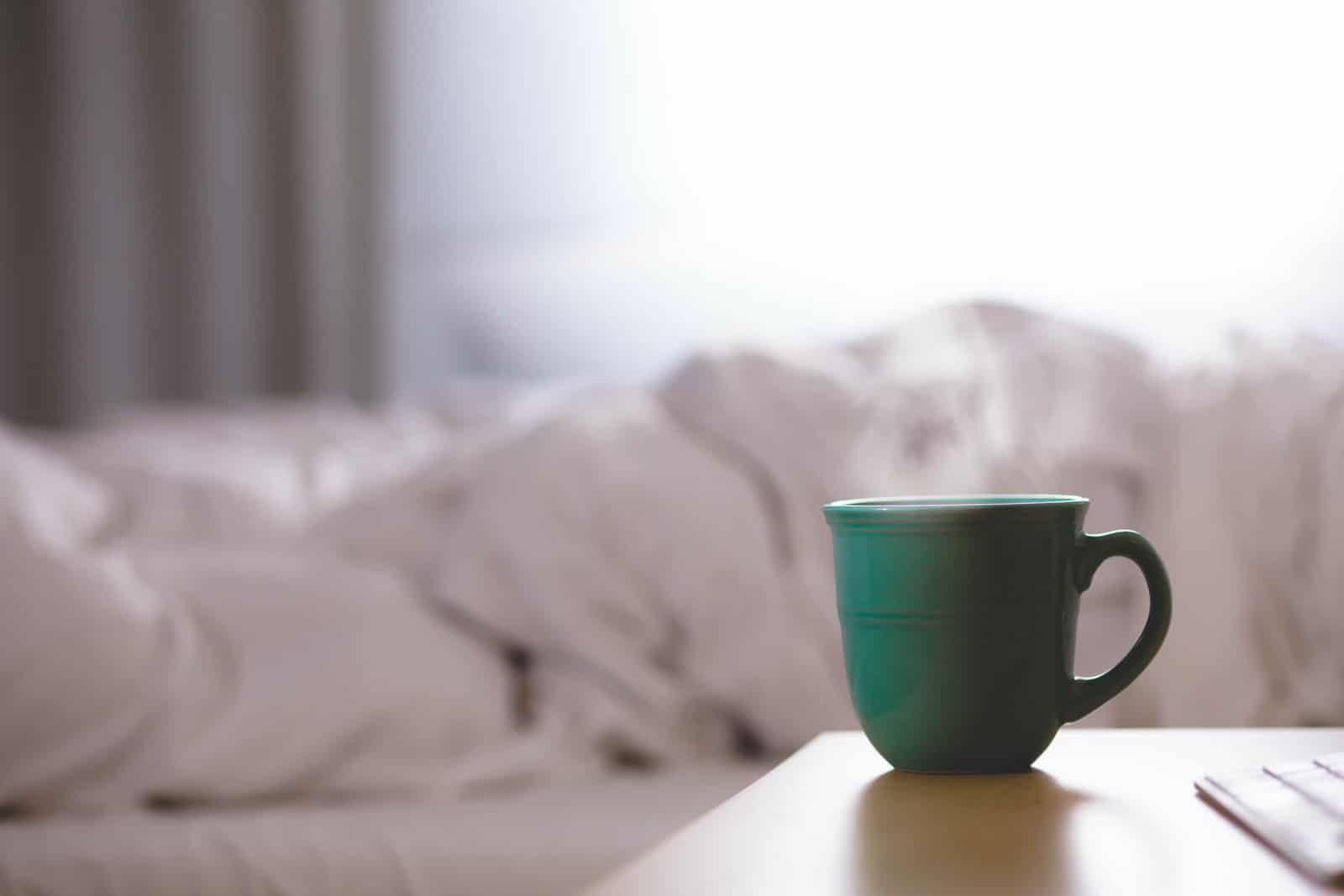Morning routines are a fan favourite of the productivity bubble. You can hardly scan the headlines of articles without finding at least one that promises to completely transform your life if you only follow the same 47 steps that millionaires seem to be doing before 5 am. That’s maybe a bit of an overstatement, but having a morning routine can still be a great way to have a structured start into the day. If only you could stick to it…
Why I like having a morning routine
Put simply, a morning routine provides me with the right amount of structure to put the day on the right track.
I usually wake up quite energised, but I am also easily distracted if I it’s up to me to plan my day. And I’ve been in the incredibly lucky. With a short exception of me trying to be a lawyer for three months, I’ve had pretty much full autonomy on how I spend my time for the past 5 years.
It wasn’t free time. I was preparing for the bar exam and working as a lawyer-in-training, but it was up to me to create all structures (thanks in no small part to the little remote work situation we’ve had going on).
But if you don’t have an external schedule to stick to, it’s easy to get distracted. During university, I would often start a free day playing “just one or two” games of League of Legends. Needless to say that I never stopped after two games and that those days were not the most productive.
What’s more, I’m 100% a morning person. My most productive time is from 30 minutes after I wake up to 3 hours later when I start getting hungry for lunch. If I need to get something done, it has to happen in that time window. Trying to do anything after lunch is a bit of a gamble.
That’s why my morning routine acts as my guardrails. It ensures that I start well into the day and get a few important things done before my afternoon slump washes over me.
What my morning routine looks like (or rather: should look like)
Through a lot of trial and error and with the help of countless articles that promised me the perfect morning routine, I landed on a more or less sustainable schedule that should look roughly like this (on most days):
- wake up
- drink a big glass of water
- do some super simple morning stretches: rolling my neck and shoulders, mobilising my hips and knees and helping my lower back face the day.
- brush teeth and wash my face
- take athletic greens (and hope that it actually does something)
- meditate for 10 minutes
- journal a few paragraphs (or just one)
- sit on my desk and work for 25 minutes on my blog
All in all, it takes me 40 to 50 minutes to go from bed to sitting on my desk. And just as important as all the things I do DO first thing in the morning is the one thing I try not to:
- check my phone
Whether or not I check my phone has an outsized impact on my morning.
If you never paid attention to it, you might not realise the impact your phone has on your brain. But you can run an easy experiment. For the next 2-3 days, start your day without looking at your phone. No browsing. No quick look at your emails. Don’t even open it to check your Whatsapp.
Then, sit for 10 minutes and meditate. It’s fine if you’ve never meditated before. All you want to do is sit in a comfortable position, close your eyes and pay attention to your breath. Try to follow the air as it flows into your body. And as it exits your body.
Your mind will inevitably wander and get distracted. That’s ok and kind of the whole point. Just notice when you are distracted and bring your attention back to your breath.
Now, after three days of no phone, switch things around and check your phone before meditating.
For me, the difference is stunning. My mind is racing much faster and instead of freely associating and having random thoughts and ideas, it’s usually obsessed with one or two things it just saw on my phone.
So for the first half of the pandemic, I only opened my phone after my first 25 minute pomodoro session.
But then things started to break down.
Just checking the phone quickly can’t be that bad, right (… right?!)
In the second half of the pandemic, a few things changed and my discipline took a hit.
- I got really into crypto and for the first time in a while, really enjoyed following a 24 hour news cycle on a topic
- I started working as a lawyer and had significantly less time to work on my blog
- I took twitter more seriously
- My morning routine started to feel like a chore
Slowly but steadily, my morning routine went from something I was excited and protective about to this checklist of things I had to do before the fun part could begin.
I was still looking forward to my 25 minutes of blog time, but was it really necessary to meditate every day? And wouldn’t it be more efficient if I quickly checked my notifications?
I really wanted to know what was happening in crypto. And see if my latest tweet got any replies. Even though I’m well aware of the addictive design of social media, I just chose to accept that behaviour change. After all, it was just a few minutes.
And slowly but steadily, my morning routine changed. For a while, I couldn’t find my notebook anymore. So I stopped journaling. Then, there were some weeks where I had very little time in the morning (after scrolling for 10-20 minutes in bed), so I stopped meditating. And all of the sudden, my morning looked something like this:
- wake up
- drink a big glass of water
- sit on the couch with my phone, checking twitter, email, slack and the latest crypto news
- stretch
- start working
The impact was noticeable. My mind was already racing when I sat down to work. I had less random ideas and creative sparks in the morning, because my thoughts were occupied with whatever I had just seen on my phone. Plus, my whole morning felt more like a chore than something that I got to do.
Habits are never really set in stone (particular good ones)
I had gotten complacent with my habits. They were well established, thanks to the lessons learned in Atomic Habits. But I had forgotten another thing about them: habits are always only meta-stable.
That means that fairly small changes in your surrounding, your lifestyle or other behaviours can easily disturb the balance in which you stick to your habits.
You probably know that from vacations. Life feels a lot different when you’re not at home and all of the sudden, you do different things. And it’s not just good habits that might be put on pause. It’s also easier to stop a bad behaviour when your outside of your usual surrounding and the triggers are no longer there.
Usually, that isn’t too dramatic. Once you’re back in your usual environment, the old clues and triggers might still be strong enough to help you get back into your routine (or suck you back into your bad habits). But if it was a fairly fragile equilibrium, then it could well be that – just like me – you all of the sudden start doing the opposite of what you want to do.
Good habits are not a set-it-and-forget-it kind of thing. It’s a continuous process.
How to get back your good habits back (if you tend to lose them)
So what can we do to make sure we actually stick long-term to our good habits, if the deck is stacked against us?
Here are a few ideas that I’m playing with:
- write down your good (and bad) habits. From time to time, look at the list and ask yourself: am I still doing what I said I would do?
- do a habit audit. Why are you even doing the things on your list? Having a habit isn’t the end in itself. Reminding yourself why you’re trying to cut down on sugar, exercise and stretch regularly or call a friend every day helps to remind you of your why.
- While you’re at it, identify your key stone habits. Two or maybe three (but not more) habits that are the most important ones. Now, whenever there’s a big outside influence that impacts your habits, make sure that you prioritise your key stone habits. Letting go of others for some time is ok, but try to protect the most crucial ones.
- write a post-it with your good habits (and the why) and put it somewhere you can see it
- be honest with yourself. It’s ok to fall off the wagon. And maybe an old habit actually doesn’t serve you anymore. But if you’ve given in to your bad tendencies, acknowledge that.
- use big outside changes to your advantage. You can use the meta-stability to your advantage to get rid of bad behaviours. I just moved to a new city which is a pretty big change in environment. I haven’t scrolled through my phone in the morning in the new place yet and instead went back to my old routine and so far it’s working great.
For the past week, I’ve been back to the old routine. Meditation and journaling are in, mindless phone scrolling is out.
(well not completely. I still check everything after my first two pomodoro sessions. Baby steps. Baby steps.)
And so far, I’ve been feeling great. It’s actually a bit ridiculous how much of an impact sitting in silence and writing one paragraph about random stuff has on my mood.
Which just makes it all the weirder that my brain – despite knowing all of this very well – still hasn’t developed an urge to meditate or journal.
Instead it just wants to know whether there’s a new notification on twitter.
Sigh.


